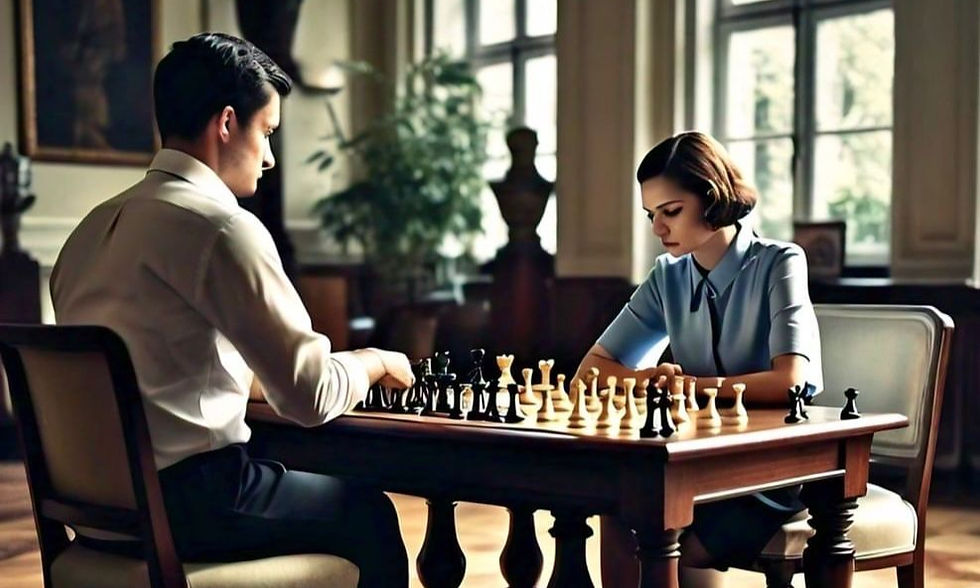5 Ways How Chess Enhances Critical Thinking
- avishac2020
- Oct 11, 2025
- 2 min read
Chess, often regarded as the ultimate test of strategic thinking, is not just a game, but a mental exercise that improves decision-making skills and enhances critical thinking. It involves analyzing, evaluating and decision-making every move from computing moves to predicting enemy strategies; the game of chess is often considered the most intense test of strategic thoughts. In this article, we'll explore 5 ways how chess enhances critical thinking and why it's a valuable activity for people of all ages.
Cultivating Foresight Through Chess, Enhancing Critical Thinking

Planning multiple moves in advance is a basic aspect of chess. To do this, players must consider how their adversaries will answer and plan ahead with diverse possibilities and potential consequences in mind. Such continuous prediction encourages the growth of foresight centric thought which is crucial in enhancing critical thinking and making decisions that cut across different fields.
Enhancing critical thinking through option evaluation in chess

Chess rarely presents a single, perfect move. Players are constantly bombarded with a multitude of choices, each with its own set of advantages and disadvantages. Evaluating these options effectively requires a well-developed ability to analyze information, assess potential risks and rewards, and ultimately choose the course of action that best aligns with their overall strategy. This mental agility in handling complex situations translates into enhanced critical thinking and improved decision-making in various aspects of life, from tackling work challenges to navigating personal relationships.
How chess hones critical thinking under pressure

In chess, the dynamic nature of the game requires that you re-evaluate your position constantly. What could have been a strong move several moves ago might be disastrous in the light of a counter-strategy by your opponent. This ongoing requirement to change direction hones the critical thinking skill of flexibility. Chess players learn to be resourceful, to consider alternative plans, and to modify their strategies based on the evolving situation. This adaptability under pressure proves invaluable in real-world scenarios where circumstances can change unexpectedly, and the ability to adjust one's approach is crucial for success.
Fostering Critical Thinking through Pattern Recognition in Chess

Successful chess players possess a keen eye for patterns and tactics. Recognizing recurring patterns on the chessboard enables players to anticipate their opponent's moves and formulate effective strategies. This ability to pattern recognition transcends the boundaries of the chessboard, aiding individuals in sharpening critical thinking, recognizing patterns in data, situations, and problems, thereby facilitating informed decision-making.
Conclusion
In sum, chess serves as a catalyst for enhancing critical thinking and decision-making skills. Through planning and prediction, evaluation of options, problem-solving under pressure, pattern recognition, and adaptability, chess enthusiasts develop a mental toolkit that extends far beyond the chessboard. By engaging in this strategic dance of the mind, players cultivate the ability to analyze, strategize, and make sound decisions, empowering them to tackle challenges with confidence and clarity.
.png)





Comments